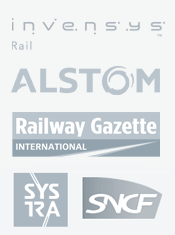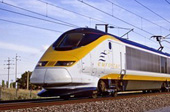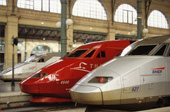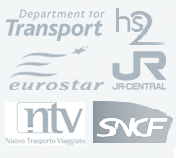
News

Interview with Sir David Rowlands, Chair of HS2
28th July 2009
Good things come to those who wait. Many of us in the UK transport industry believe we've been waiting far too long for high-speed rail. But does UK Plc really need it?
Sir David Rowlands, Chair of HS2, the limited company set up (and owned) by the Government in January 2009 and tasked to investigate the case for high-speed rail between London and Scotland, is the ideal person to ask.
By virtue of its name HS2 (HS1 being the fully operational 107km high speed rail link between St Pancras and the channel tunnel, opened in November 2007) one would assume that Britain's second high-speed rail line is inevitable.
Rowlands knows all about how Westminster works - a civil servant since 1974, he moved into the Department for Transport in 1983 and steadfastly remained in transport until his retirement in 2007 having reached the top as Permanent Secretary. Before accepting the HS2 post, Rowlands advised the DfT that the project needed focus, hence the arm's length company. "The reason why I was appointed Chair of HS2 is because high-speed rail is still at the politics stage, not the delivery stage", Rowlands points out.
By 31st December 2009 he must submit his report to Government, with a preferred high-speed rail route (but including options) for London to the West Midlands and strategic corridors up to Scotland, backed up with a sound business case. Knowing that the decision on high speed rail may rest with a Conservative government, he wants to make sure that his final recommendations are acceptable to whoever is in Government after the Election.
In fact, high-speed rail as an economic imperative is one issue where both Lord Adonis and his Conservative shadow, Theresa Villiers, thankfully agree. Rowlands explains that the need to consider high-speed rail comes from acknowledgement by the DfT that by 2026 additional capacity, especially between London and the West Midlands was necessary. The DfT's own conclusion was based on a projection of 100% passenger growth on mainline services and 120% growth in regional and suburban services in the West Midlands. Today's recession will certainly have an impact on passenger growth, and hence on timing, but growth remained strongly above-trend from 2006-2008. Given the capacity constraints on the existing route to the West Midlands, Rowlands' HS2 study will give the Government two costed options for additional capacity: build a new conventional rail line or one capable of running high-speed trains. The Department for Transport will assess the alternative of further upgrades, but given the recent completion of the West Coast Mainline upgrade at a cost £8 billion and taking around nine years to complete, this has dampened the appetite for further work to the existing network.
However, there is no escaping the fact that high-speed rail will be very expensive. Rowlands says "HS2 is not going to happen without a significant proportion of taxpayers' money". The Treasury will need convincing. The business of spending taxpayers' money means, Rowlands explains modelling "assumptions based on reality, not wishful thinking". He does not think the market for domestic flights will simply stop, "people will still need to fly from Aberdeen and Belfast to London".
If Rowlands' recommendations are taken forward, HS2 Ltd could ultimately become 'the client' and procure the programme management to deliver Britain's second high-speed railway. According to Rowlands, "the last thing you want are civil servants or Ministers project managing".
The true value of his experience should please everyone in the transport industry. He does not take a narrow view that high-speed rail should be funded at the expense of other transport projects. Rather, he implies that high-speed rail is of national importance.
Rowlands states that "schemes such as HS1 and London's Crossrail will have lasting benefits for generations to come, and were funded with this in mind".
Twenty years ago when Michael Heseltine, then Environment Minister, took the decision to build HS1, his advisors singled out the wider regeneration benefits that it would bring to the Thames Gateway region.
Rowlands' last break was a trip to the Loire Valley, by Eurostar and TGV. He'll say he's not a rail enthusiast, but then this is a sign of someone who perhaps has seen the future and, like the Secretary of State who appointed him, believes that Britain should have some of it.
Sir David Rowlands will be addressing UK's high-speed rail future at the HSR Summit in London on 9th September 2009.





